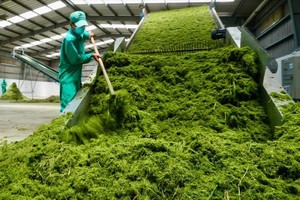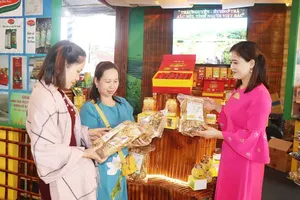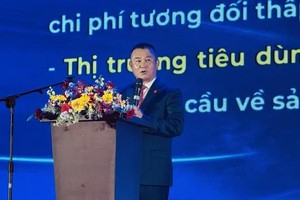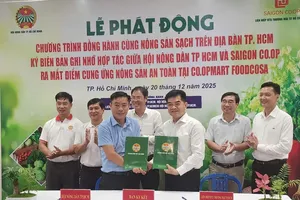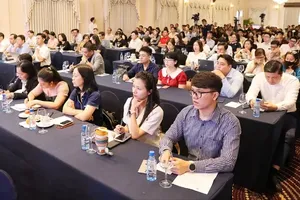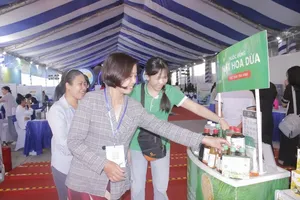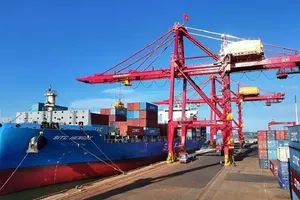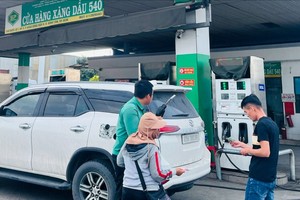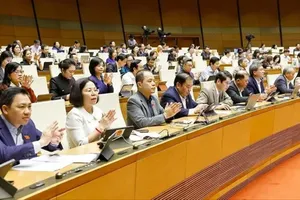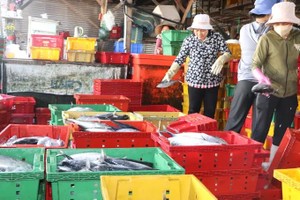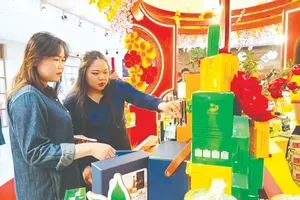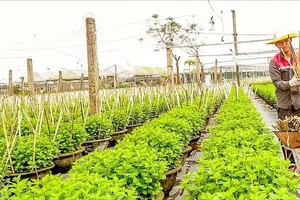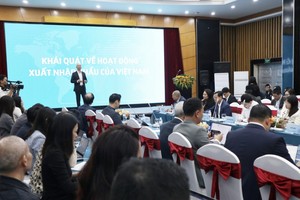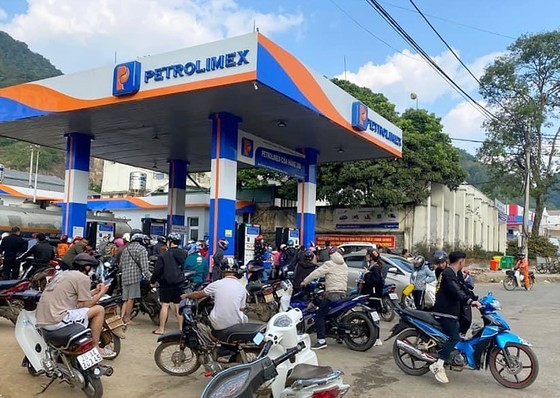
It is not at all hard to spot certain people standing in long lines at gas stations in the provinces of Son La, Lao Cai. Along National Highway No.1A, fuel stations only sell petrol for a limit of VND50,000 (US$2.01) per scooter and VND300,000 ($12.06) per car.
It is said that sellers are waiting for the time the Ministry of Industry and Trade and the Ministry of Finance announce the latest fuel price adjustment this afternoon.
The Industry and Trade Department of Lao Cai informed that out of 88 gas stations in the province, 8 reported merchandise shortage and stopped selling petrol. However, after checking, the provincial Market Management Authority discovered that 3 stations violated fuel trading regulations and imposed an administrative fine of VND150 million ($6,033), along with a request to submit more than VND456 million ($18,300) of illegal profit.
Chairman of Vietnam Petroleum Association (VPA) Bui Ngoc Bao stated that the current fuel shortage is common in the world, and it could be worse in the upcoming time. Therefore, sufficient petroleum import is truly a tough challenge.
The first reason for this situation is because businesses in the field find it harder to access the supply. Adding to that is a higher import premium of up to $11-12 a barrel, a record high for the last 10 years.
Another factor negatively affecting fuel import is dissimilar import tax rates among import regions and markets. In compliance with the Agreement of ASEAN Free Trade Area (AFTA), the import tax rates for petrol and oil are 8 percent and zero percent, respectively.
Meanwhile, according to the tax mechanism of Most Favoured Nation (MFN), even though the Government reduced the import tax rate for unleaded motor gasoline from 20 percent to 10 percent this August, it is still 2 percent higher the rate of imports from ASEAN countries. The MFN’s import tax rate for oil is still as high as 8 percent, compared to zero percent of AFTA. Obviously, businesses favor to buy fuel from ASEAN nations, yet the supply here is not too surplus.
VPA forecasts that in the near future, Vietnam still encounters inconveniences in buying and selling fuel like other countries in the world, but at least the supply is still guaranteed.
It is, therefore, advisable to implement synchronous measures like addressing specific problems of fuel businesses so that they can follow the schedule of distributing petroleum amounts assigned by the Industry and Trade Ministry; reviewing and adjusting the base price formula for imported goods; logically rearranging the gas supply system when the market is more stable.
In related news, the departments of Transport – Industry and Trade – Traffic Police yesterday sent a proposal to ask Hanoi People’s Committee to allow gas-tank trucks of 10 tonnes and above to operate round the clock in 3 months at most. When the permit expires, those in need can request an extension.



